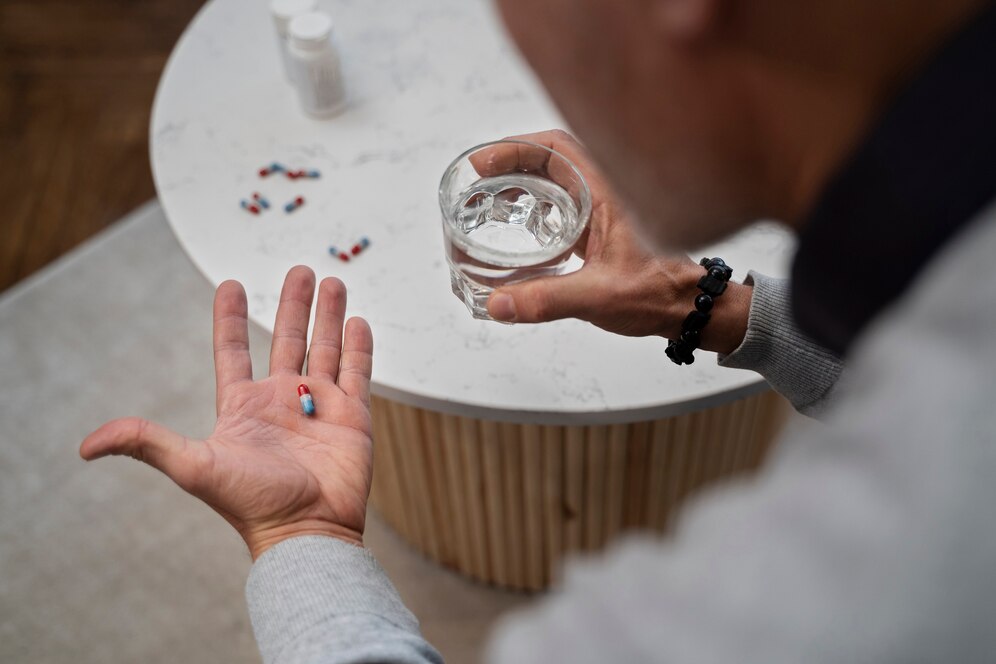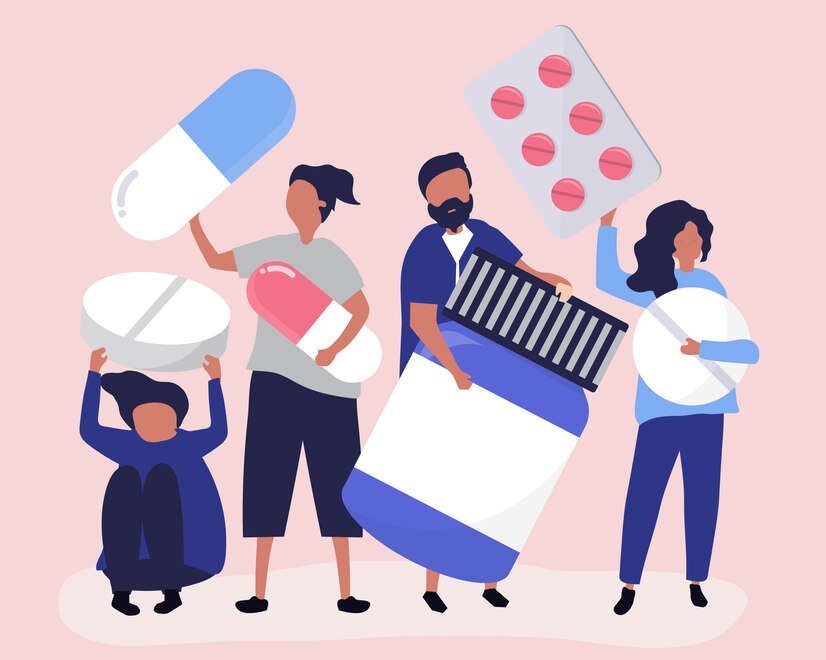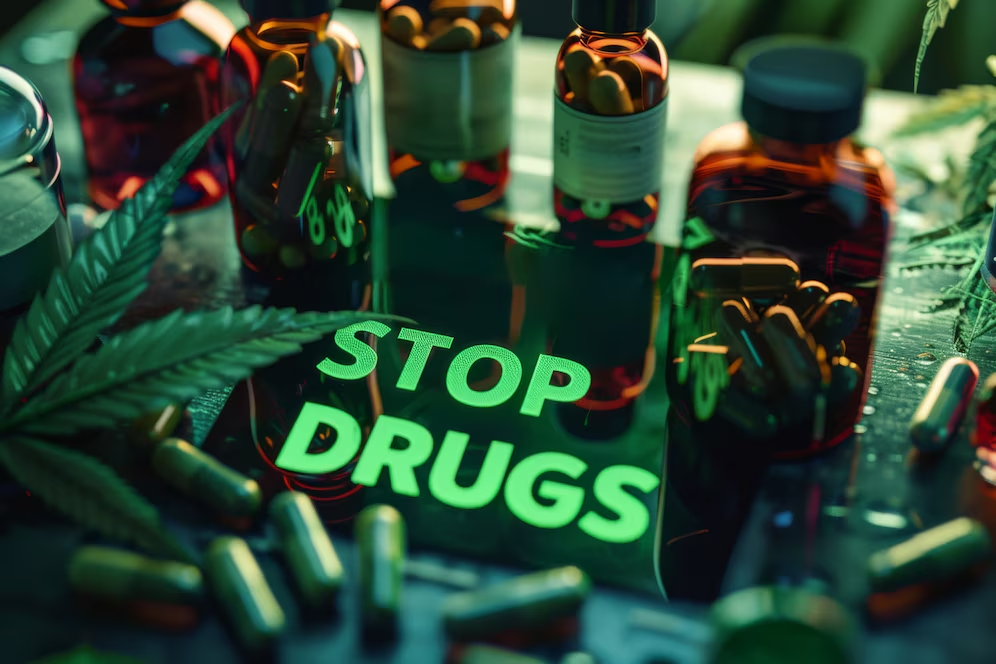Table of contents
The opioid epidemic remains one of the most pressing public health challenges globally, with millions affected by addiction, overdose, and chronic pain. As healthcare providers and researchers search for safer alternatives, CBD in Reducing Opioid Use has become a growing area of interest. Cannabidiol (CBD), a non-psychoactive compound derived from the hemp plant, offers potential for pain relief and reduced dependence on opioid medications.
In this blog post, we’ll explore how CBD may play a role in lowering opioid use, supporting pain management, and promoting safer therapeutic practices.
Understanding the Opioid Crisis

Opioids, including prescription drugs like oxycodone and hydrocodone, as well as illicit substances like heroin, are powerful painkillers. While effective for acute and severe pain, long-term use can lead to:
- Dependency
- Tolerance (needing higher doses for the same effect)
- Overdose risks
- Devastating health and social consequences
As the dangers of opioids become more widely recognized, the medical community is increasingly exploring complementary therapies, including CBD in Reducing Opioid Use.
How CBD Works in Pain Management

CBD interacts with the body’s endocannabinoid system (ECS), a network of receptors responsible for regulating pain, mood, inflammation, and more. CBD’s mechanisms include:
- Modulating pain perception
- Reducing inflammation
- Enhancing the body’s natural pain-relieving processes
- Calming anxiety and stress, which often accompany chronic pain
Unlike opioids, CBD does not create euphoric effects or lead to dependency, making it an attractive alternative or adjunct therapy for pain management.
Research Supporting CBD in Reducing Opioid Use
Several studies have shown promising results for CBD in Reducing Opioid Use:
- Pain Reduction: Research suggests that CBD can effectively reduce pain levels, particularly in conditions like arthritis, neuropathy, and cancer-related pain.
- Opioid-Sparing Effects: Some clinical trials report that patients using CBD required lower doses of opioids for effective pain control.
- Reduced Cravings and Withdrawal: Early studies indicate that CBD may help decrease cravings and ease withdrawal symptoms in people recovering from opioid addiction.
For instance, a 2019 study published in the American Journal of Psychiatry found that CBD reduced cue-induced cravings and anxiety in individuals with heroin use disorder, suggesting a potential role for CBD in addiction recovery programs.
Benefits of Using CBD Alongside or Instead of Opioids
CBD in Reducing Opioid Use presents several advantages:
- Lower Risk of Addiction: CBD does not produce the “high” associated with opioids.
- Fewer Side Effects: CBD’s side effects, such as dry mouth or mild drowsiness, are usually much less severe than those of opioids.
- Improved Quality of Life: Many patients report better sleep, reduced anxiety, and improved mood with CBD use.
- Potential Cost Savings: Reducing or eliminating opioid prescriptions can lead to financial benefits over time.
How to Integrate CBD Safely
If you are considering using CBD to reduce opioid use:
- Consult Your Doctor: Always discuss changes to your medication plan with a healthcare professional.
- Choose High-Quality Products: Opt for lab-tested, full-spectrum or broad-spectrum CBD products.
- Start Low and Go Slow: Begin with a low dose and monitor your body’s response.
- Monitor for Interactions: Be aware that CBD can interact with other medications, so medical supervision is critical.
FAQs About CBD in Reducing Opioid Use
CBD can be a helpful adjunct or alternative for some patients, but it may not completely replace opioids for severe pain without professional guidance.
While some patients do use both, it’s essential to do so under medical supervision due to possible drug interactions.
Some people feel effects within hours, while for others, consistent use over days or weeks provides the most benefit.
Full-spectrum CBD oils, capsules, and topical creams are popular choices for managing chronic pain.
CBD derived from hemp (containing less than 0.3% THC) is federally legal in the U.S., but using it as an official treatment for opioid addiction may vary by state and specific medical regulations.
Final Thoughts
As the dangers of long-term opioid use continue to unfold, finding safer alternatives is crucial. CBD in Reducing Opioid Use offers a hopeful and promising solution for many battling chronic pain and seeking freedom from opioid dependence. While more research is necessary to fully understand its potential, early evidence supports the idea that CBD could be a valuable tool in the ongoing fight against the opioid crisis.
If you or a loved one are considering this path, remember to prioritize professional medical advice and use only high-quality CBD products to ensure safety and effectiveness.





